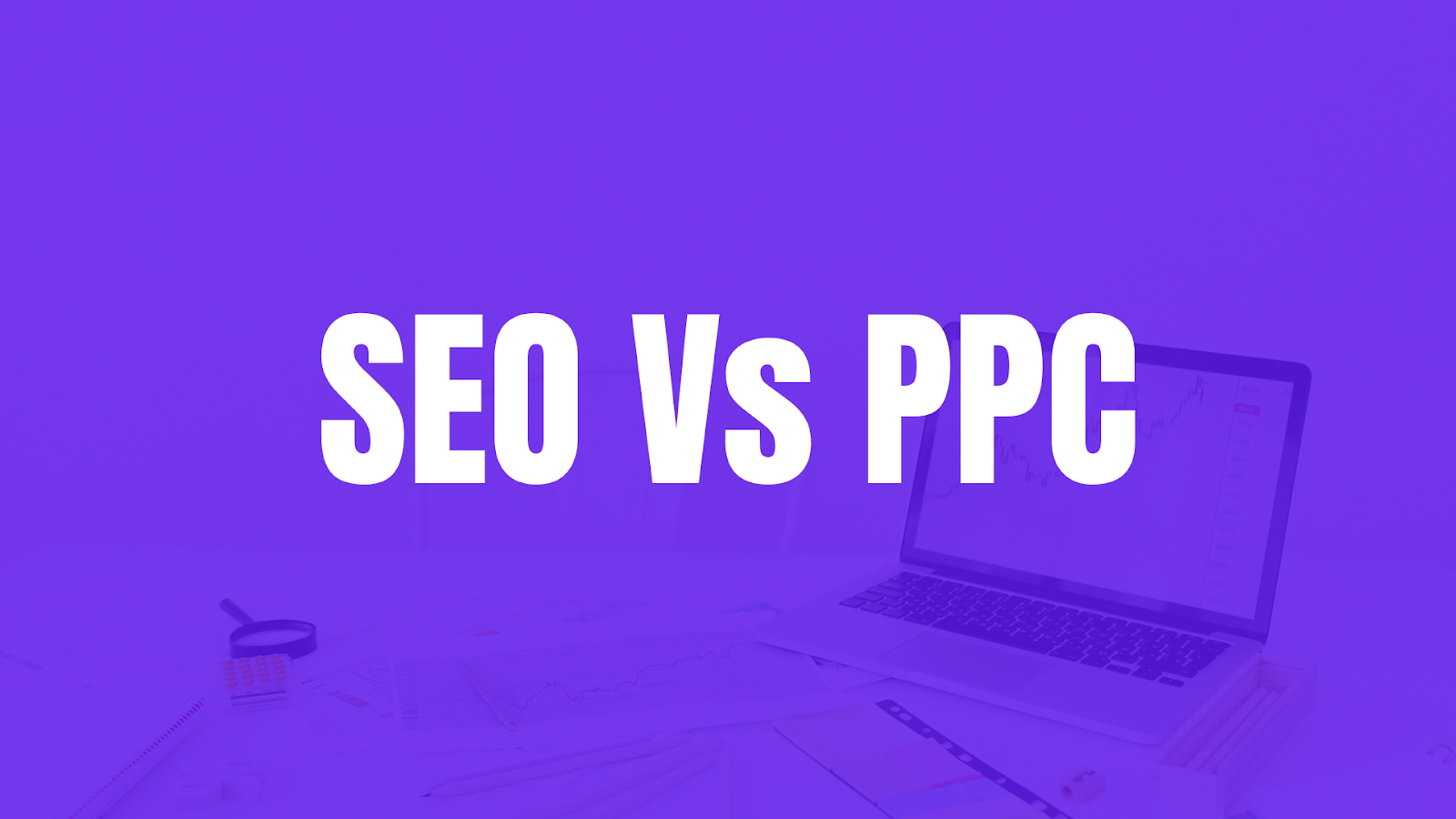When it comes to online marketing, two popular strategies that businesses often employ are Pay-Per-Click (PPC) advertising and Search Engine Optimization (SEO).
Both methods aim to increase visibility and drive traffic to a website, but they achieve this in different ways.
In this article, we will explore how ranking differs when comparing PPC vs SEO, and the advantages and disadvantages of each approach.
PPC: Instant Visibility with a Cost
According to Zulqarnain, PPC advertising is a paid marketing strategy where businesses bid on keywords to display their ads on search engine result pages (SERPs) or other websites.
These ads are typically displayed at the top or bottom of the page and are marked as “sponsored” or “ad.” The ranking of PPC ads is determined by a combination of bid amount, ad relevance, and quality score.
One of the key advantages of PPC is its ability to provide instant visibility. As soon as you launch a PPC campaign, your ads can appear on relevant searches and drive traffic to your website. This is particularly beneficial for new businesses or those looking to promote a specific product or service quickly.
However, PPC advertising can be expensive, especially for highly competitive keywords. Each time a user clicks on your ad, you pay a certain amount, hence the name “Pay-Per-Click.” This cost can add up quickly, and if your campaign is not properly optimized, you may end up spending a significant amount without seeing the desired results.
Related: PPC Services in Dubai
SEO: Organic Ranking for Long-Term Success
On the other hand, SEO focuses on optimizing a website to improve its organic (unpaid) ranking on search engine results pages. Unlike PPC, SEO does not involve paying for ads but instead focuses on enhancing the website’s content, structure, and authority to improve its visibility in search engine rankings.
Ranking in SEO is determined by various factors, including keyword relevance, website quality, user experience, backlinks, and more. SEO is a long-term strategy that requires consistent effort and ongoing optimization to maintain and improve rankings.
Unlike PPC, SEO does not provide instant visibility. It takes time for search engines to crawl and index websites, and even longer for the changes made through SEO efforts to take effect.
However, once a website achieves a strong organic ranking, it can generate consistent traffic and leads without the ongoing cost of PPC advertising.
Advantages and Disadvantages of PPC and SEO
While both PPC and SEO aim to increase visibility and drive traffic, they have distinct advantages and disadvantages:
Advantages of PPC:
- Immediate visibility and traffic
- Ability to target specific keywords and demographics
- Control over ad copy and landing page experience
Disadvantages of PPC:
- Costly, especially for competitive keywords
- Requires ongoing management and optimization
- Ads labeled as “sponsored” may be viewed as less trustworthy
Advantages of SEO:
- Long-term visibility and traffic
- Organic rankings are viewed as more trustworthy by users
- No ongoing cost per click
Disadvantages of SEO:
- Takes time to see results
- Requires ongoing effort and optimization
- Can be impacted by search engine algorithm updates
Conclusion
When comparing PPC vs SEO, it is clear that they have different approaches to achieving visibility and rankings. PPC offers instant visibility with a cost, while SEO focuses on long-term organic rankings.
The choice between the two depends on factors such as budget, goals, and timeline. Consider your business’s specific needs and objectives to determine which strategy is the most suitable for you. In some cases, a combination of both PPC and SEO may yield the best results, leveraging the advantages of each method.
Remember, whether you choose PPC or SEO, it is crucial to continually monitor and optimize your campaigns or efforts to ensure maximum effectiveness and return on investment.
Frequently Asked Questions
Is PPC or SEO more measurable and quantifiable?
Both PPC and SEO offer different metrics for tracking and measuring success. PPC provides immediate and measurable results through metrics such as click-through rate (CTR), cost per click (CPC), conversion rate, and return on ad spend (ROAS). SEO takes longer to see results, and the metrics are not as direct, but it provides long-term benefits and consistent organic traffic over time.
What two stages of the purchase funnel should we target to get the most conversions?
To get the most conversions, it is essential to target the consideration and conversion stages of the purchase funnel. PPC is effective at targeting these stages by bidding on keywords related to specific products or services. SEO, on the other hand, is effective at targeting the awareness and consideration stages by creating high-quality content that educates and informs users.
How is ranking different when comparing PPC vs SEO?
PPC ranking is determined by factors such as bid amount, ad relevance, and quality score. PPC ads appear at the top of search engine results and are labeled as “sponsored” or “ad.” SEO ranking, on the other hand, is influenced by factors such as website content, backlinks, user experience, and technical optimization. Organic rankings appear below PPC ads and are the non-paid listings on search engine result pages.
What are the three main areas for getting good organic rankings?
The three main areas for getting good organic rankings are website content quality, backlinks from authoritative sources, and technical optimization. Having high-quality, relevant content, acquiring authoritative backlinks, and ensuring technical aspects such as site speed and mobile-friendliness are optimized can improve organic rankings.
What is the first stage of the purchase funnel?
The first stage of the purchase funnel is the awareness stage. This is when potential customers become aware of a problem or need and start researching possible solutions. SEO is effective at targeting this stage by providing informative and educational content that addresses the needs and concerns of users.
How do links to your site help you?
Links to your site help improve your website’s visibility and authority. In PPC, landing page quality and relevance to the ad impact the quality score, which can affect ad positions and costs per click. In SEO, backlinks from authoritative and relevant websites are viewed as votes of confidence and trust by search engines. High-quality backlinks can increase your website’s authority and improve organic rankings.
Name two elements on a search page as discussed by Zulqarnain
Two important elements on a search page, as discussed by Zulqarnain Jabbar, are the meta title and meta description. The meta title is the clickable headline that appears in the search results, while the meta description provides a brief summary of the page’s content. Optimizing these elements with relevant keywords and compelling copy can improve click-through rates and ultimately impact rankings.



